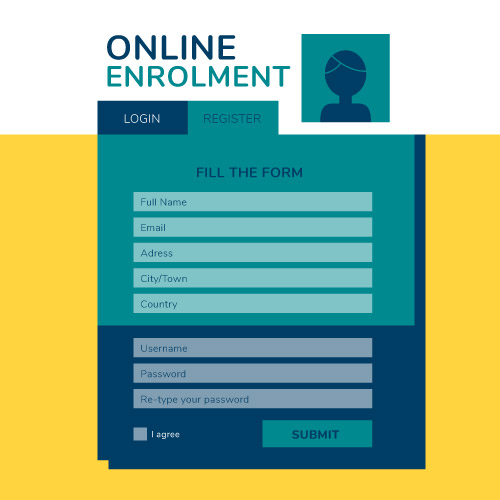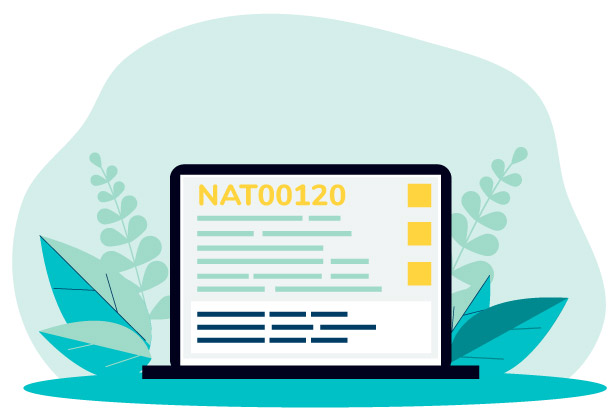
2024 Changes to Skills First
Taking into account RTO’s need for certainty, the Department has offered a Skills First contract of 2-years duration. The longer-duration

On Sunday, Premier Daniel Andrews released a statement of changes for Victoria and with the new restrictions in place, training providers are now facing a minimum of 6 weeks without being able to engage in face to face training with their students. This change in the way many training colleges operate could have significant implications for cash flow, given the nature of the SVTS payment logic.
In this article, we look at some ways that you can ensure continual engagement with your students, regardless of the COVID situation in Victoria.
Prospective learners are no longer allowed to attend face to face pre-training review or enrolment sessions. If your RTO would like to continue to accept enrolments, then you must implement a robust online procedure which covers all aspects of the enrolment process. Since March this year, we have been implementing streamlined enrolment processes into contracted RTOs across Victoria and here are the main considerations you should make:

Most Student Management Systems come with an option for completion of web-based enrolments. It is important to speak with your SMS vendor and find out more about utilising their online enrolment functionality if you are not already using it. There is also a range of other available web-based solutions that can assist you to satisfy the requirements of the contract such as software for managing electronic signatures and developing interactive forms as well as the Commonwealth Government’s Document Verification Service, the most secure and fastest way to check eligibility for government-subsidised training and concession as well.
For some more information on how to implement such procedures, watch our webinar on how to implement an online PTR and enrolment process
If you are not using a Learning Management System to engage with your cohorts and you think that your courses and cohorts could work with such a system, now’s the time to consider it.  You will need to choose one which offers the features and functions to accommodate the needs of your cohort as well as your business model. Furthermore, you should consider transforming your training and assessment material into an engaging e-learning format. Your existing materials may work well for face-to-face training but that does not necessarily translate to the online environment. Do not just copy and paste your paper-based resources! A course delivered online needs to be intentionally designed for the online environment, not simply an electronic replication of classroom-based resources. Consider using an e-learning authoring tool that enables you to create and arrange content into a standardised course structure. This structure can then be exported in several different multimedia types and imported in your LMS.
You will need to choose one which offers the features and functions to accommodate the needs of your cohort as well as your business model. Furthermore, you should consider transforming your training and assessment material into an engaging e-learning format. Your existing materials may work well for face-to-face training but that does not necessarily translate to the online environment. Do not just copy and paste your paper-based resources! A course delivered online needs to be intentionally designed for the online environment, not simply an electronic replication of classroom-based resources. Consider using an e-learning authoring tool that enables you to create and arrange content into a standardised course structure. This structure can then be exported in several different multimedia types and imported in your LMS.
Remote or online learning has now temporarily become the only delivery mode for every training provider. Technically speaking, SVTS would now expect all students continuing to engage via online delivery to be reported with the “External Delivery” flag. This would more than likely become the Predominant Delivery Mode Identifier for units of competency where the eligible individual does not attend a physical delivery location but undertakes training in their own time and location using training materials which are provided online.
 This field is reported in your NAT00120 file and must align with the delivery methods specified in the relevant training and assessment strategy document. Note that where the Predominant Delivery Mode is reported as “External Delivery”, the Department will consider this training to have been delivered online or via distance education. In this case, the location of where the training is being coordinated must be reported as the training organisation delivery location in your NAT000120 file. Even if this location is associated with a non-metropolitan postcode, the Regional Loading (Subsidy x 1.1) does not apply, so watch out regional based training providers, as your regional loading may be reversed in your next upload if you change your units over to External Delivery as the predominant delivery mode.
This field is reported in your NAT00120 file and must align with the delivery methods specified in the relevant training and assessment strategy document. Note that where the Predominant Delivery Mode is reported as “External Delivery”, the Department will consider this training to have been delivered online or via distance education. In this case, the location of where the training is being coordinated must be reported as the training organisation delivery location in your NAT000120 file. Even if this location is associated with a non-metropolitan postcode, the Regional Loading (Subsidy x 1.1) does not apply, so watch out regional based training providers, as your regional loading may be reversed in your next upload if you change your units over to External Delivery as the predominant delivery mode.
If you are struggling to maintain a positive monthly cashflow due to disruptions or delays in your training delivery, you may want to consider taking advantage of the reporting mechanism which allows you to temporarily suspend units of competency from the SVTS reapportioning payment logic. If your organisation chooses to use this mechanism, any extensions to the activity end dates of “in progress” (code 50 or 70 or 79) units of competency will not trigger payments to be recalculated over the updated delivery duration.
To achieve this, the subject enrolment must be reported with the Purchasing Contract Schedule Identifier code of “C19”. The newly created Purchasing Contract Schedule Identifier may be reported against units of competency where the activity end date has been extended in the future due to training being temporarily suspended or external verification of training is unavailable or training is continuing but with significant delays. This mainly applies to units of competency with a practical placement component or an assessment that must be conducted in a workplace environment.
There are many forms of EOP that can support claims for payment related to online training activity:

The Department has previously acknowledged in the following contract notification that the current circumstances have greatly impacted training providers’ capacity to operate in a business-as-usual manner and has applied flexibility to some contractual requirements.  The main obligations where flexibility has been applied are as follows:
The main obligations where flexibility has been applied are as follows:
 With the amount of enrolments and training services declining, your staff members may start feeling that they do not have enough work to do. If that is the case, then this is the most suitable time to get your staff involved into other unpopular but still important side projects, such as:
With the amount of enrolments and training services declining, your staff members may start feeling that they do not have enough work to do. If that is the case, then this is the most suitable time to get your staff involved into other unpopular but still important side projects, such as:
 Both ASQA and VRQA have published specific guidelines and instructions about RTOs that need to implement temporary measures as they respond to the challenges caused by the pandemic. ASQA needs to be advised in case your organisation has temporarily ceased operations or has changed delivery locations or delivery modes.
Both ASQA and VRQA have published specific guidelines and instructions about RTOs that need to implement temporary measures as they respond to the challenges caused by the pandemic. ASQA needs to be advised in case your organisation has temporarily ceased operations or has changed delivery locations or delivery modes.
VRQA is also expecting training providers that think they are unable to address the requirements of their registration or are no longer financially viable, to contact them and discuss the issue.

Taking into account RTO’s need for certainty, the Department has offered a Skills First contract of 2-years duration. The longer-duration

Managing the transition from superseded training products can be a complicated and time-consuming process for RTOs. From time to time,

According to the Audit and Assurance Findings Report by the Department of Education, Evidence of Participation (EOP) made the top 5 most common issues identified at audit. Make sure you’re on top of your EOP obligations!

The 2023 Victorian VET Funding Contract came with significant changes to the eligibility settings. In this article, we cover the 2023 changes relating to the Skills First eligibility requirements and evidence retention.

In an effort “to increase the ability of Victorians to reskill and to continue to participate in an evolving economy”,

Not all Skills First funded training conducted in the workplace translates into an apprenticeship/traineeship enrolment. It is common for Training

